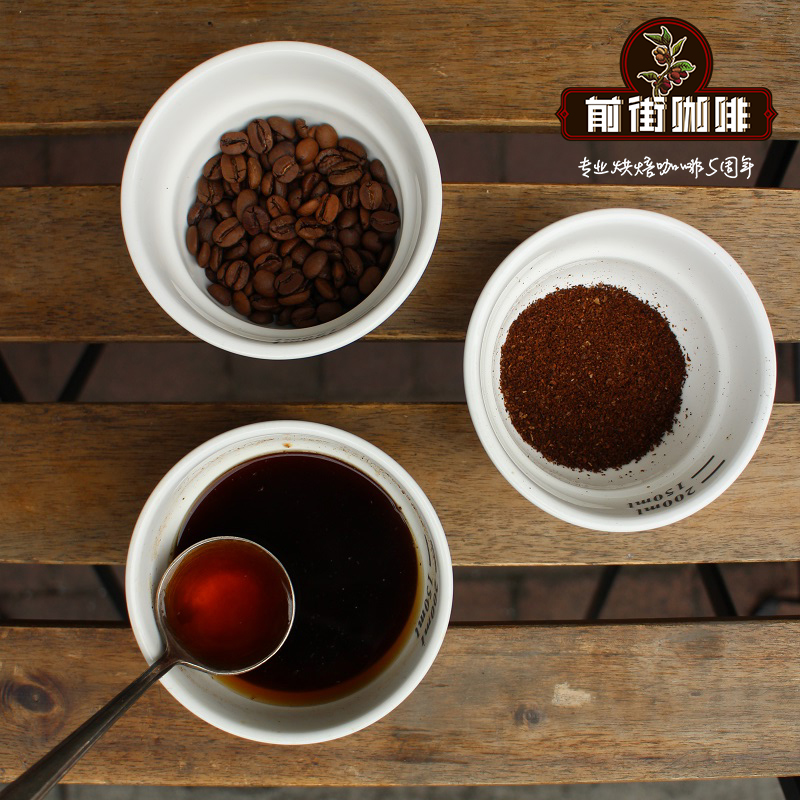How about coffee from Rwanda, the host country of Africa's first coffee cup competition?
Professional coffee knowledge exchange more coffee bean information please follow the coffee workshop (Wechat official account cafe_style)

Rwanda, located in the southern equator of central Africa, is a landlocked country, bordered by Tanzania to the east, Burundi to the south, the Democratic Republic of the Congo to the west and Uganda to the north. The territory is mountainous, known as "the country of a thousand hills". The divide between the Congo River and the Nile River runs through western Luanda from north to south.
After the genocide in Rwanda in 1994, the local coffee industry had to start all over again. Rwanda's economy is dominated by agriculture. The population engaged in agriculture and animal husbandry accounts for 92% of the country's population. The main cash crops are coffee, tea, cotton and so on.
After the civil war, Rwanda has intensified its development in the cultivation and trade of coffee. In recent years, the Rwandan government has also taken active measures to set up coffee production cooperatives in various places to give technical guidance and financial support to farmers. It is expected that the domestic economic development can be promoted to a certain extent through the coffee industry. Because of the excellent performance of Rwandan coffee in recent years, it is becoming more and more popular in the international market.
Rwanda has been growing coffee since colonial times, although the crops are mainly coffee, but the quality of coffee produced in Rwanda is not outstanding, the status in the coffee world is low, and few people pay attention to it. Most of the coffee varieties grown in Rwanda are bourbon. Rwanda, known as the "country of a thousand hills", has a high-altitude mountain environment, fertile volcanic soil and abundant precipitation, and has a climate conducive to the growth of coffee trees. The advantages of varieties and excellent natural conditions should have produced high-quality coffee, but why the quality of its coffee performance is not satisfactory? The reason lies in the later stage of processing. Improper handling will reduce the quality of coffee and sacrifice a lot of good flavor in vain. Harvesting, planting, treatment, grading, transportation and other links will directly affect the quality of raw coffee beans, any of which the lack of control will become a stumbling block to good coffee.
The coffee fruit needs to be transported to the processing plant as soon as possible after picking, but due to the lack of domestic facilities, it is unable to deal with the fruit at the first time. The fruits are piled up after being picked, which will continue to develop and accelerate mildew and decay due to lack of ventilation. Rotten fruits will affect the quality of coffee and show defective flavor.
In recent years, Rwanda has made great progress in coffee production and processing. First of all, coffee fruits are picked manually; coffee production cooperatives are set up all over the country to provide technical guidance to coffee growers; they are sent to coffee processing stations for cleaning and screening as soon as possible after picking, and mature and high-quality coffee fruits are selected for processing.
Most of the coffee in Rwanda is washed. The water washing method will first wash and flotation the ripe coffee fruit, then remove the exocarp, pulp and part of the pectin layer, then send the coffee into the fermentation tank, remove the remaining pectin layer and then send it to the drying ground for drying treatment, so that the water content reaches about 13%.

The coffee in the picture above is dried on an African shed to avoid the smell of dirt. It is more ventilated and mildew can be avoided. During the drying process, coffee farmers will also turn the beans regularly to make the drying more evenly, and at the same time will pick out the beans of poor quality and discard them. With the improvement and improvement of Rwandan coffee in various aspects, its quality has also made a qualitative leap. In the 2008 COE contest held by the American Fine Coffee Association SCAA, Arnomega, Rwanda, beat the Blue Mountain 1 of Jamaica and Mantenin G1 of Sumatra to defend the title. Rwandan coffee has won a place in the coffee world and won more attention because of its excellent quality.
Important Notice :
前街咖啡 FrontStreet Coffee has moved to new addredd:
FrontStreet Coffee Address: 315,Donghua East Road,GuangZhou
Tel:020 38364473
- Prev

Analysis of coffee oil at the flavor level
Professional coffee knowledge exchange more coffee bean information please pay attention to the coffee workshop (Wechat official account cafe_style) oil, the role played in a cup of coffee is not simple. Coffee oil may enhance the flavor of a cup of coffee, or it may ruin the flavor of a cup of coffee. Is the fat of coffee important? When it comes to coffee fat, the most intuitive thing should be Italian concentration.
- Next

The reason why Ruixing coffee plate was suspended in front of Luckin Coffee what's going on?
Professional coffee knowledge exchange more coffee bean information please follow the coffee workshop (Wechat official account cafe_style) front street-Luckin Coffee suspended trading on April 2, 2020, the US-listed Luckin Coffee (Nasdaq:LK) issued an announcement, the audit found that the company COO and others data fraud, the related amount is about 2.2 billion yuan. As soon as the news came out, Lucky plummeted 85% before trading, closing.
Related
- What brand of black coffee is the most authentic and delicious? what are the characteristics of the flavor of the authentic Rose Summer Black Coffee?
- Introduction to the principle and characteristics of the correct use of mocha pot A detailed course of mocha pot brewing coffee is described in five steps.
- Which is better, decaf or regular coffee? how is decaf made?
- How much is a bag of four cat coffee?
- How about four Cat Coffee or Nestle Coffee? why is it a cheap scam?
- Which is better, Yunnan four Cats Coffee or Nestle Coffee? How about cat coffee? is it a fake scam? why is it so cheap?
- How about Cat Coffee? what grade is a hoax? which instant coffee tastes better, four Cat Coffee, Nestle Coffee or G7 coffee?
- Process flow chart of coffee making-Starbucks coffee making process what coffee tastes good at Starbucks
- The top ten best coffee beans in the world Rose summer coffee or Tanzanian coffee tastes good
- Yunnan four cat coffee is good to drink?_four cat coffee is a big brand? four cat blue mountain coffee is fake?

